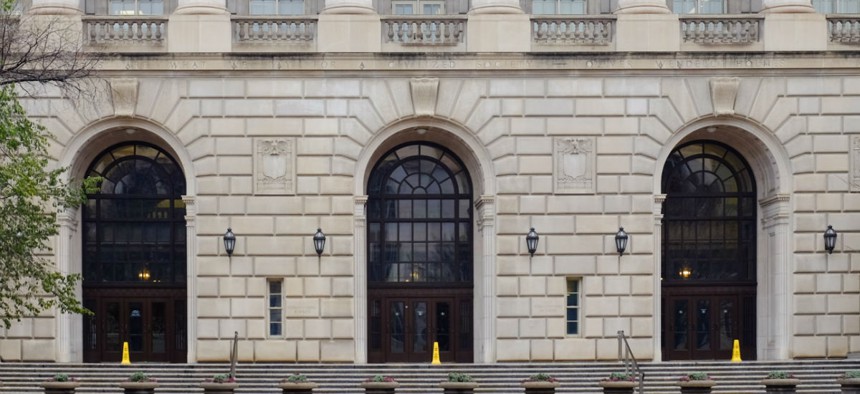Obama Threatens to Veto Bill 'Compounding' IRS Budget Cuts
Administration also expresses strong opposition to measures limiting IRS bonuses and prohibiting the agency from hiring tax delinquents or rehiring misbehaving employees.
President Obama’s team on Tuesday expressed strong opposition to four Republican bills aimed at revamping the Internal Revenue Service, threatening to veto one of them should it reach the president’s desk.
The bills, which the full House is expected to take up Wednesday or Thursday, would curb executive bonuses pending measurable agency customer service improvements, ban the IRS from hiring employees with taxes delinquencies, prohibit the agency from rehiring prior employees who were terminated due to misconduct, and repeal the IRS’ legal authority to spend user fees to offset the cost of providing services to taxpayers. The House Ways and Means Committee cleared them last week.
In a Statement of Administration Policy, the Office of Management and Budget called the bonus curb (H.R. 4890) unnecessary. “The IRS has already developed and has begun to execute a strategy to improve taxpayer services,” the statement said of the bill, introduced by Reps. Patrick Meehan, R-Pa., and Pete Sessions, R-Texas. “The real constraint on the IRS' ability to serve taxpayers effectively is severe underfunding, including for taxpayer services.”
On the No Hires for the Delinquent IRS Act (H.R. 1206), introduced by Rep. David Rouzer, R-N.C., the White House said, “The bill could result in the IRS being prohibited from hiring any new employees for any purpose – a drastic and counterproductive step that would compromise tax administration and taxpayer services.” The Obama team called the bill “unworkable in operation, as ‘seriously delinquent’ debts could be as low as $1 and tax liens are recorded on a case-by-case basis.”
The Ensuring Integrity in the IRS Workforce Act (H.R. 3724), sponsored by Kristi Noem, R-S.D., “could force the immediate termination of employees who had been terminated and rehired many years ago, even if their performance since rehiring has been blemish-free,” the White House said. “The bill's prohibition is also unnecessary because current IRS processes already ensure the agency does not rehire former employees who had significant conduct or performance problems during prior employment with the agency.”
The IRS Oversight While Eliminating Spending Act (H.R. 4885), introduced by Rep. Jason Smith, R-Mo., would curb the ability of the IRS has enjoyed since 1995 to fund programs through use of fees. In the view of the White House, the bill would “reduce overall IRS resources by roughly 4 percent, compounding budget cuts that have left the IRS severely underfunded and reversing the limited progress the IRS has been able to make on taxpayer service levels this year after receiving a modest funding increase in fiscal year 2016.”
Repeating the administration’s position that the IRS needs more money, not less, the veto threat said this bill would undermine “the fairness and integrity of the tax system in ways that would increase burdens on taxpayers, including by increasing the deficit.”
The Senate, meanwhile, is also at work on bills to change the IRS in the aftermath of the recent disputes over alleged politically biased treatment of taxpayers by IRS officials. Sen. Chuck Grassley, R-Iowa., on Monday announced that the Finance Committee this week would consider bills to extend the time limit on taxpayers seeking to contest a levy; hold harmless those individuals subjected to an improper levy on retirement plans; codify the internal IRS record-retention policies; and make electronic filing mandatory for all tax-exempt organizations rather than just the largest and smallest.
Grassley, along with Sen. John Thune, R-S.D., also is pressing a bill to study problems at the IRS relating to “offers in compromise” when negotiating payments from taxpayers who have run into financial distress.








